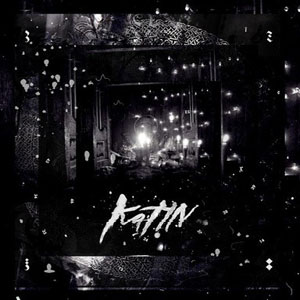Kahn Kahn
Like many of his comrades in Bristol’s Young Echo collective, Joe McGann’s work as Kahn […]

Like many of his comrades in Bristol’s Young Echo collective, Joe McGann’s work as Kahn has skipped across genres at will. In addition to garage- and dubstep-based efforts for bass-music mainstays Punch Drunk and Deep Medi, McGann has lately put his name to an exciting series of releases with his friend Neek (a.k.a. Sam Barrett), which essentially fed grime and bashment dissociative steroids. This self-titled EP ramps up those releases’ marginal vocal presence—every track here features a different vocalist—and the backdrop is considerably eerier.
It would seem that McGann is now turning his attention to the sort of calculated murkiness pioneered by the likes of Old Apparatus and the Tri Angle label. The producer is adept at conjuring these sorts of atmospherics; the EP’s tracks are blurred by reverb and underlined by crackle, but their rhythms are persistently crisp and propulsive. Unfortunately, most of his guests’ performances are not as pristine. “Prophet” and “Snake Eyes” feature dub poetry from Rider Shafique and Jabu, respectively. The commanding former opts for cryptic cod-mysticism; Shafique goes on about “apocalyptic visions” and the “age of reckoning,” yet his words are never concrete enough for these “prophecies” to make an impact. On “Snake Eyes,” Alex Rendall delivers a sort of half-rap that recalls both The Streets and so many American backpack MCs of the last decade. Although his words are delivered with a grounded seriousness, they quickly meander. The track is marginally picked up by bluesy organ and a smoothly crooned chorus, however.
McGann himself delivers the vocal on “No More.” Its mumbly melodrama is pretty trite, but he does know how to ride his own production—one wonders how a full record of similar experiments might sound. “Badman City,” with Flowdan, features the record’s most innovative production, synthesizing classic grime and foggy, ethereal dread. Although the tough veteran MC’s performance is mostly unremarkable, McGann builds him a powerful framework, which takes cues from “Wot Do U Call It?” in its strings and melds distorted square waves with unsettling vocal drones. Interestingly, the record’s best vocal performance comes via the uncredited female guest on “Cover Me.” While her counterparts drown in their wordiness, she delicately drifts between glimpses of spoken word and wordless song, as smudged strings drone below. Hers isn’t a stunning performance by any means, but it’s a suitably airy complement to the producer’s morose palette. Overall, though, the EP’s self-titling is a misnomer, as many of McGann’s best aspects are compromised in favor of his guests.

